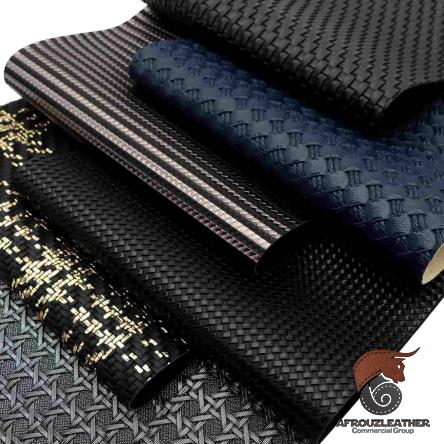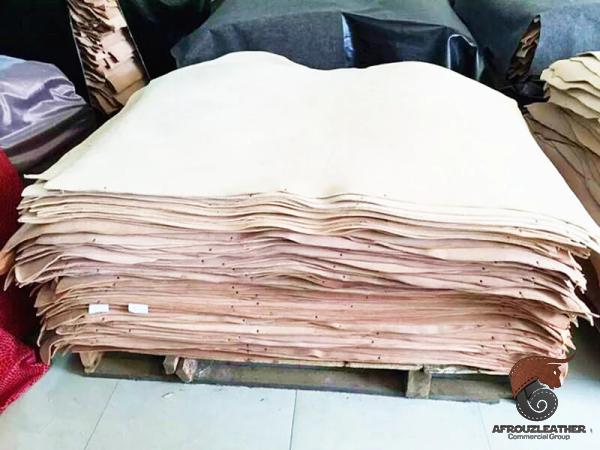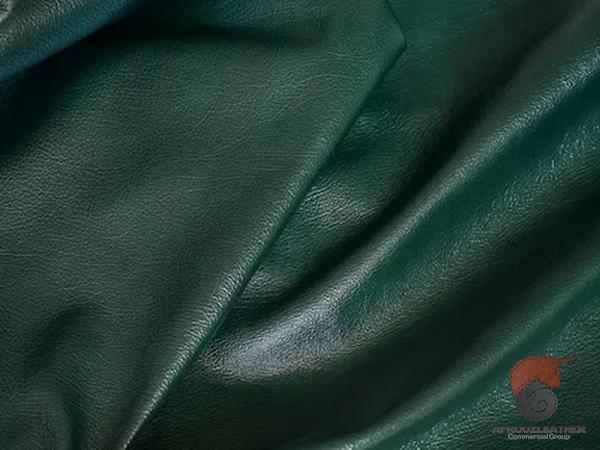In recent years, the fashion industry has witnessed a growing demand for sustainable and cruelty-free materials. As a result, various alternatives to traditional animal leather have emerged, including sheep crust raw vegan leather. This innovative product not only addresses ethical concerns related to animal cruelty but also offers a sustainable solution to the environmental challenges posed by the leather industry. This article explores the concept of sheep crust raw vegan leather, its manufacturing process, benefits, and its potential impact on the fashion industry. Understanding Sheep Crust Raw Vegan Leather: Sheep crust raw vegan leather is a synthetic material that closely replicates the look, texture, and feel of genuine animal leather. It is primarily manufactured from plant-based and bio-derived materials such as cork, pineapple leaves (Piñatex), apple peels, mushroom fibers, recycled plastic bottles, and other natural fibers. Unlike traditional leather, the production of sheep crust raw vegan leather does not involve any animal by-products or harmful chemicals.
leather
 Manufacturing Process: The production of sheep crust raw vegan leather involves a multi-step process. Firstly, the base material, which can vary depending on the manufacturer, is treated to enhance its strength and durability. This can include processes such as weaving, knitting, or layering plant-based fibers. Next, the material is coated with a layer of polymer and resin, which creates a smooth and waterproof surface. The material is then printed with a design or texture to resemble authentic leather. Finally, the material is treated with natural oils or waxes to enhance its suppleness and make it suitable for various applications, such as footwear, accessories, and garments. Key Benefits of Sheep Crust Raw Vegan Leather: 1. Animal Welfare: The use of sheep crust raw vegan leather eliminates the need for animal agriculture and the associated cruelty towards animals, making it a compassionate alternative for conscious consumers. 2. Environmental Sustainability: Traditional leather production is notorious for its heavy environmental impact due to deforestation, water pollution from chemical tanning processes, and animal agriculture. On the other hand, sheep crust raw vegan leather significantly reduces the carbon footprint by using plant-based materials and minimizing chemical use.
Manufacturing Process: The production of sheep crust raw vegan leather involves a multi-step process. Firstly, the base material, which can vary depending on the manufacturer, is treated to enhance its strength and durability. This can include processes such as weaving, knitting, or layering plant-based fibers. Next, the material is coated with a layer of polymer and resin, which creates a smooth and waterproof surface. The material is then printed with a design or texture to resemble authentic leather. Finally, the material is treated with natural oils or waxes to enhance its suppleness and make it suitable for various applications, such as footwear, accessories, and garments. Key Benefits of Sheep Crust Raw Vegan Leather: 1. Animal Welfare: The use of sheep crust raw vegan leather eliminates the need for animal agriculture and the associated cruelty towards animals, making it a compassionate alternative for conscious consumers. 2. Environmental Sustainability: Traditional leather production is notorious for its heavy environmental impact due to deforestation, water pollution from chemical tanning processes, and animal agriculture. On the other hand, sheep crust raw vegan leather significantly reduces the carbon footprint by using plant-based materials and minimizing chemical use.
Specifications of leather
 Additionally, innovative companies are actively sourcing and using recycled materials to further enhance its sustainability profile. 3. Versatility and Performance: Sheep crust raw vegan leather offers versatility in terms of design, color, and texture. The manufacturing process allows for customization, enabling designers to create unique and fashionable products that mimic traditional leather. Moreover, this innovative material is highly durable, resistant to cracks, and can be easily adapted for various applications in the fashion industry. 4. Hypoallergenic and Ethical: Regular leather can trigger allergic reactions in some individuals due to the presence of chemicals used in the tanning process. In contrast, sheep crust raw vegan leather is naturally hypoallergenic, making it a safer option for those with sensitivities. Furthermore, the use of this vegan alternative aligns with the ethical principles of those who reject the notion of exploiting animals for fashion products. Potential Impact on the Fashion Industry: The advent of sheep crust raw vegan leather has significant implications for the fashion industry.
Additionally, innovative companies are actively sourcing and using recycled materials to further enhance its sustainability profile. 3. Versatility and Performance: Sheep crust raw vegan leather offers versatility in terms of design, color, and texture. The manufacturing process allows for customization, enabling designers to create unique and fashionable products that mimic traditional leather. Moreover, this innovative material is highly durable, resistant to cracks, and can be easily adapted for various applications in the fashion industry. 4. Hypoallergenic and Ethical: Regular leather can trigger allergic reactions in some individuals due to the presence of chemicals used in the tanning process. In contrast, sheep crust raw vegan leather is naturally hypoallergenic, making it a safer option for those with sensitivities. Furthermore, the use of this vegan alternative aligns with the ethical principles of those who reject the notion of exploiting animals for fashion products. Potential Impact on the Fashion Industry: The advent of sheep crust raw vegan leather has significant implications for the fashion industry.
buy leather
 As sustainability and ethical considerations gain prominence, more consumers are seeking alternatives to traditional leather. This demand has prompted designers and manufacturers to explore innovative materials like sheep crust raw vegan leather to meet consumer expectations for environmentally friendly and cruelty-free products. Consequently, the growth of this market has the potential to disrupt the entire leather industry, encouraging a transition towards more sustainable practices. Challenges: Although sheep crust raw vegan leather appears to be a promising alternative, several challenges need to be addressed for its widespread adoption. These challenges include cost competitiveness, scalability of production, and consistent quality. As the demand for vegan leather increases, manufacturers should invest in research and development to enhance the cost-efficiency of production and improve the quality standards. Conclusion: Sheep crust raw vegan leather offers a sustainable and cruelty-free alternative to traditional animal leather. With its ethical advantages, reduced environmental impact, and remarkable versatility, this synthetic material has the potential to revolutionize the fashion industry. As consumers become more conscious of the consequences of their purchasing decisions, the demand for ethical and sustainable alternatives will continue to rise. It is crucial for both fashion brands and consumers alike to embrace innovative solutions like sheep crust raw vegan leather as we strive towards a more compassionate and sustainable future.
As sustainability and ethical considerations gain prominence, more consumers are seeking alternatives to traditional leather. This demand has prompted designers and manufacturers to explore innovative materials like sheep crust raw vegan leather to meet consumer expectations for environmentally friendly and cruelty-free products. Consequently, the growth of this market has the potential to disrupt the entire leather industry, encouraging a transition towards more sustainable practices. Challenges: Although sheep crust raw vegan leather appears to be a promising alternative, several challenges need to be addressed for its widespread adoption. These challenges include cost competitiveness, scalability of production, and consistent quality. As the demand for vegan leather increases, manufacturers should invest in research and development to enhance the cost-efficiency of production and improve the quality standards. Conclusion: Sheep crust raw vegan leather offers a sustainable and cruelty-free alternative to traditional animal leather. With its ethical advantages, reduced environmental impact, and remarkable versatility, this synthetic material has the potential to revolutionize the fashion industry. As consumers become more conscious of the consequences of their purchasing decisions, the demand for ethical and sustainable alternatives will continue to rise. It is crucial for both fashion brands and consumers alike to embrace innovative solutions like sheep crust raw vegan leather as we strive towards a more compassionate and sustainable future.

Your comment submitted.